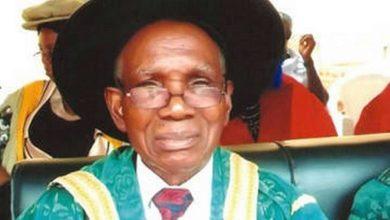
The Revenue Mobilisation Allocation and Fiscal Commission (RMAFC) has raised objections to the value-added tax (VAT) sharing formula outlined in the proposed tax reform bills, citing potential violations of the 1999 Constitution.
In a memorandum signed by the Chairman of RMAFC by Muhammad Shehu, the commission expressed serious legal, constitutional, and technical concerns about the proposed bills. The objection comes in the wake of a request from President Bola Tinubu on October 3, urging the National Assembly to review and pass the reform bills, despite resistance from various quarters.
The proposed VAT sharing formula in the bills allocates 10 percent to the federal government, 55 percent to the states, and 35 percent to local governments. This contrasts with the current distribution model, where the federal government receives 15 percent, states take 50 percent, and local governments get 35 percent.
RMAFC’s opposition hinges on the assertion that Section 162(2) of the 1999 Constitution (as amended) grants the commission the exclusive authority to determine the formula for equitable revenue sharing among the three tiers of government. Shehu emphasized that the constitution mandates the commission to ensure that such a formula is grounded in principles of fairness, justice, and equity.
“The proposed bills would significantly bolster the Commission’s efforts and Nigeria’s ability to mobilize domestic revenue,” Shehu said, acknowledging the potential benefits of the proposed reforms in integrating untapped sources of revenue, including contributions from the informal sector. However, he underscored that the derivation of VAT allocations remains a contentious issue, sparking debates among stakeholders.
In his memo, Shehu stressed that RMAFC’s role is central to ensuring an equitable distribution of revenues, and that the VAT allocation formula must adhere strictly to the framework established by the commission. He argued that arbitrary changes, such as those proposed in the reform bills, undermine the commission’s constitutional authority.
Shehu urged the federal government to empower RMAFC to finalize a VAT allocation formula, in line with its constitutional mandate. He further recommended that discussions take place among federal, state, and local governments to reach a consensus on the RMAFC-approved formula, minimizing disputes and promoting acceptance across all levels of government.
Additionally, Shehu called for amendments to legislation that would clarify derivation rules for interstate transactions and emphasized the importance of electronic invoicing and transaction monitoring to ensure that VAT collections are appropriately linked to end-user locations.
RMAFC expressed concern that the proposed VAT reforms could exacerbate tensions between the three tiers of government, undermining national unity and constitutional harmony. The commission reiterated that, in upholding its constitutional mandate, it can provide a fair and just solution to disputes over revenue allocation, safeguarding the principles of equity.
The memorandum concluded with a strong plea to avoid any measures whether legislative or executive that could diminish RMAFC’s authority, emphasizing that such actions could have far-reaching consequences for Nigeria’s fiscal stability and unity.





